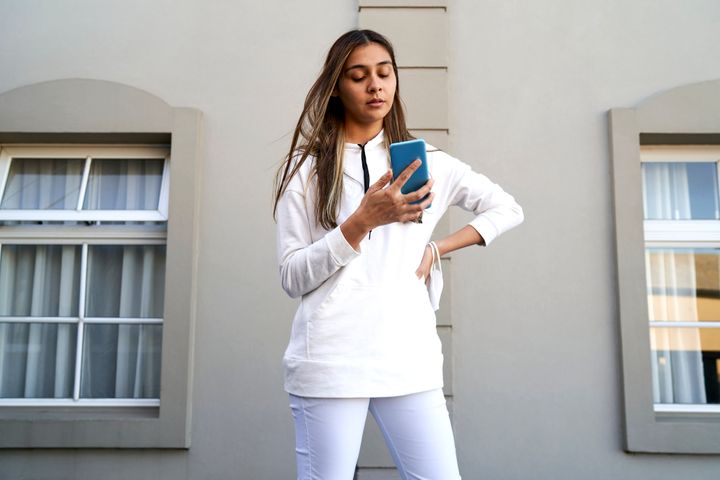
I have seen headline after headline screaming the bad news: Gen Z (roughly, those born between 1997-2012) are getting fired en masse.
Fortune magazine claims that’s because youths aren’t up to the task; they don’t dress appropriately, set reasonable expectations, show up on time, show enough initiative, or kick off their careers with a can-do attitude, the publication reckons.
Advertisement
The message is repeated across multiple media outlets; young people can’t get, or keep, jobs, and they’re all to blame, we’re told.
So I’ll admit I was relieved to speak to the founder of the London Interdisciplinary School, Ed Fidoe, who said the generation’s workplace woes are “not remotely Gen Z’s fault.”
So what’s going on?
There are a “couple of forces” to consider, the founder told HuffPost UK.
Many organisations aren’t hiring right now, and those that are feel that they can “trim their graduate intake” ― even though they “regret it, sort of four years, five years later,” he said.
Then, there’s “a structural problem, a structural challenge, which is… Gen AI, and the impact it has on graduate jobs,” he added.
Advertisement
Ed shared that “something like 80% [of students] get a 2:1 or a first from Russell Group universities” (it was 87.7% in 2022), meaning internships are crucial if you want to stand out from the crowd.
But the sort of “low-level” research jobs typically given to some interns “could be done very, very easily by the technology that exists.”
“We help broker our students to get internships every year, and… each year, it’s become quite a lot harder to place them,” the founder revealed.
Even where Ed does see some cultural misalignments between young people and the workforce, he still doesn’t think it’s helpful to blame Gen Z.
Though the founder says more and more young people are not given enough “challenges” on things as basic as handing coursework in on time, he states that universities’ failure to prepare students for “the real world” is partly down to an increasingly customer-provider relationship increasingly dear uni fees may encourage.
Advertisement
University courses themselves are rigid too, he pointed out ― “it’s built in that there’s no change in the university sector. And then we send people out into the most volatile work market that we’ve seen in probably 50 years.”
Especially post-pandemic, Ed continued, “if we see lots of layoffs, it’s not actually because it’s Gen Z being lazy. It’s just… that’s just what happened.”
So what can Gen Z, unis, or employers do to make the situation better?
Though he doesn’t think Gen Z are entirely culpable for their lot, Ed does think that universities could do a better job of setting fair expectations for students.
He calls unis “a wonderful place to be able to provide lots of support, but [also] lots of challenges,” exposing young people to “new environments and new ideas and new thinking.
“And… if universities are backing away from that, then again, my generation is doing that generation a disservice, because what it means is they are optimising for their own ease… because people are worried about being sued. But as soon as those students leave, they’re going to enter a workplace, and the workplace is on the whole not going to be conforming to that,” Ed explained.
Advertisement
He adds that in the London Interdisciplinary School, “we want people to have difficult conversations. What we don’t want is people to avoid them.”
But Ed says employers themselves often have a skewed view of what their youngest workers can offer.
Far from being underqualified, he says, some Gen Z may find themselves bored by the realities of work ― a phenomenon that may be exacerbated by employer’s perceptions of young people.
“We hear lots about employers saying that graduates don’t have any of the skills they need for the workplace…pick a list; problem-solving, initiative, communication, teamwork, all the stuff, and they’re deeply ill-prepared,” he says.
He adds: “The thing that’s not talked about very much is that graduates, particularly from… often very intellectually challenging degrees, go into work and go, this is really boring.”
He advises employers to “think a bit harder… about what your students are actually capable of because they are highly capable.”
Advertisement
“Think a bit harder about what they could be really outstanding at,” Ed says.
“There will be some things they can be better at than you are currently, and not just technology, right? Which is the sort of lazy perspective.”









